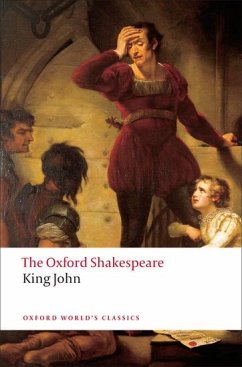
Henry IV, Part 2
Versandkostenfrei!
Versandfertig in 2-4 Wochen
14,99 €
inkl. MwSt.

PAYBACK Punkte
7 °P sammeln!
Rene Weis reveals Shakepeare's use of multiple sources to be eclectic in the extreme in this radical reconsideration of the play's date and text. He also argues for the first time that Falstaff was called Oldcastle in Part 2 as well as in Part I. The play's striving towards a form of order, peace, and legitimacy is explored in relation to Part I and through rigorous attention to structure and language. A full account of the play's history in performance and on film yields a fascinating reflection of its relationship to national triumph and crisis, as well as the diverse idealogical interpretations it has inspired.
This new edition of one of Shakespeare's greatest history plays offers a freshly considered text fully alert to its intense theatrical aspects. A helpful Introduction discusses the play's structure, language, and performance history, and the notes provide an illuminating commentary on details of the text.













